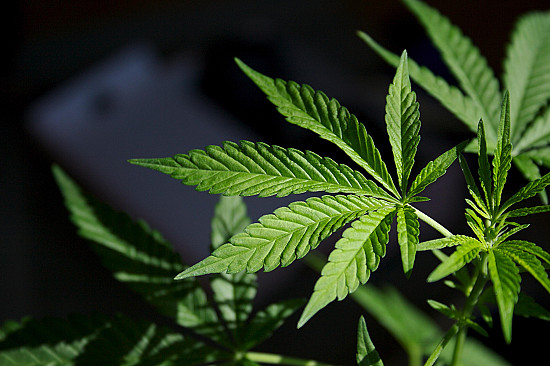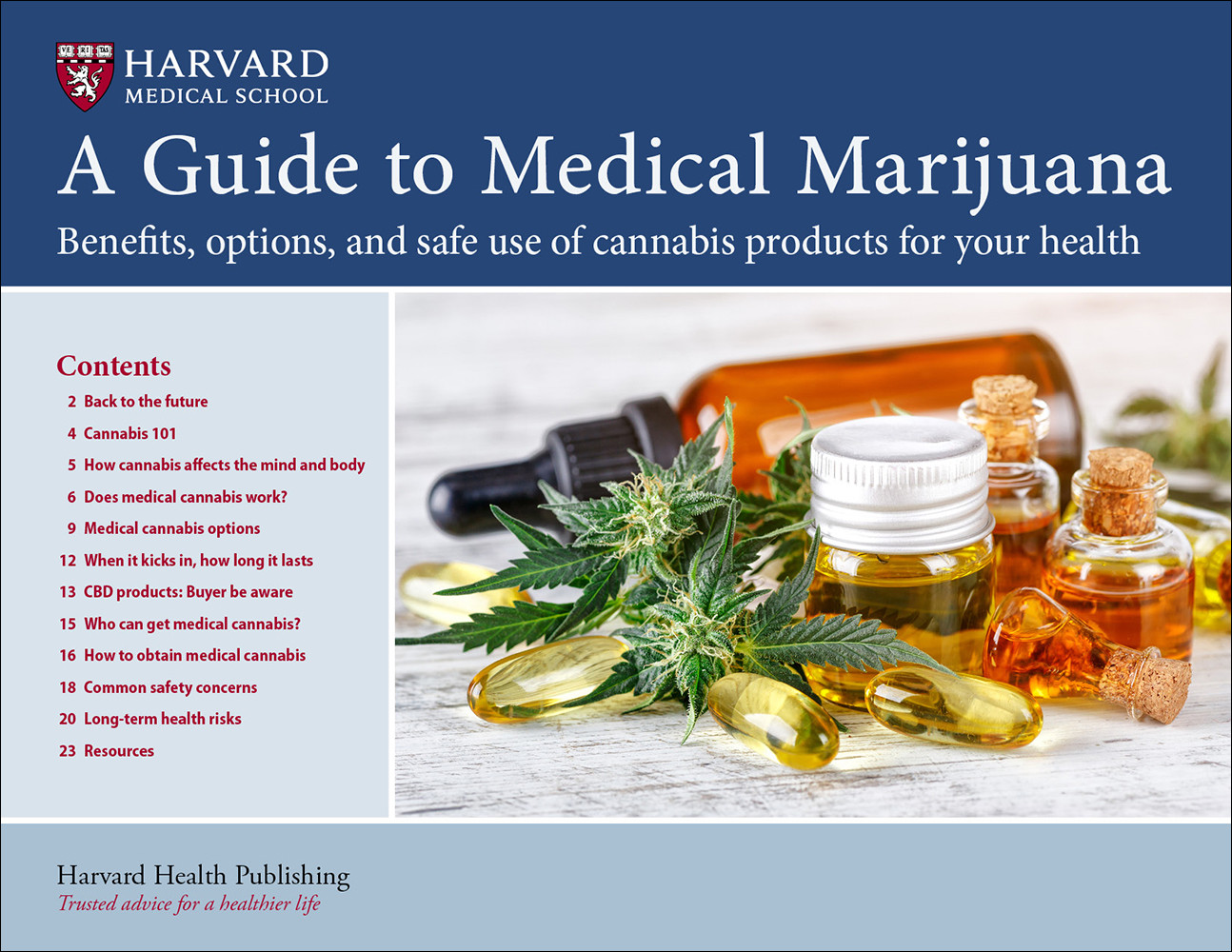CBD products are everywhere. But do they work?
Cannabidiol products may be helpful for some conditions, but evidence is lacking for others.
- Reviewed by Peter Grinspoon, MD, Contributor; Editorial Advisory Board Member, Harvard Health Publishing

By now, you've probably run into a product containing cannabidiol, also known as CBD. It is in everything from drinks and pet products to lotions and chewable gummies. Even major drugstore chains have announced they will start carrying CBD products in certain states.
But many people still don't really know what CBD is. Is it marijuana? Is it legal? Does it actually work? For what conditions? Is it safe?
The answers to those questions aren't necessarily straightforward. The only thing that is clear at this point: when it comes to CBD products, the marketing of and enthusiasm for them has gone way ahead of the science.
That said, CBD is thought to be a safe and effective option for certain conditions. Below, we sort through the confusion by answering some of the most common questions about CBD.
Is CBD marijuana?
Yes and no. Cannabidiol is one of the two best-known active compounds derived from the marijuana plant. The other is tetrahydrocannabinol, or THC, which is the substance that that produces the high from marijuana.
CBD does not get you high or cause significant impairment, but the idea that it's not psychoactive is something of a misconception. It does change your consciousness. You may feel mellow or sleepy, experience less pain, and be more comfortable. In addition, some CBD products do contain small amounts of THC, which might affect how you feel.
While CBD can come from marijuana, it can also be derived from hemp. Hemp is the same plant as marijuana, only it contains 0.3% or less of THC. Hemp has been used to make fabrics and ropes for thousands of years. As of 2018, Congress made hemp (but not marijuana) legal in all 50 states. Consequently, CBD derived from hemp is legal on a federal level, though there are a few states that still discourage its use.
Is marijuana-derived CBD legal?
Again, yes and no, depending on where you live. In some states marijuana is legal for both recreational use and medical use. In other states it's legal only for medical use. And in some places it's not legal at all. On a federal level, CBD produced from hemp is considered to be legal, while CBD derived from marijuana is not considered to be legal — even though it is the exact same molecule (demonstrating how arbitrary some of our drug laws can be).
When it comes to CBD products, the FDA is still trying to get its arms around the issue. Currently, CBD products are considered to be supplements, which aren't FDA-regulated and thus can be of abysmal quality. It is illegal for companies to make unsupported health or therapeutic claims about the products in their marketing.
In announcing its effort to set CBD marketing rules, the FDA signaled that it is cracking down on CBD companies that are using "egregious and unfounded claims" to market their products to "vulnerable populations." For example, some companies were erroneously claiming that "CBD cures COVID" (it doesn't). This was shut down fairly quickly by the FDA.
Currently, there is only one CBD product that has FDA approval: a prescription medication called Epidiolex, successfully used to treat some rare severe seizure disorders in children. In order to understand whether CBD is legal where you live, you'll need to consult your state health department website or professionals in your community.
Does CBD work?
There is evidence that CBD is quite helpful for some conditions, but certainly not all the conditions it is being promoted for. There's no evidence, for example, that CBD cures cancer, as some proponents claims. There is moderate evidence that CBD can improve sleep disorders, fibromyalgia pain, muscle spasticity related to multiple sclerosis, and anxiety. There is increasing data that CBD may help people overcome various addictions.
People commonly report that oral CBD helps relieve anxiety and pain and can lead to better sleep. CBD can be taken as a pill, found in a gummy, taken as a tincture, or smoked (which isn't a healthy way to consume it). One huge problem is that laboratory testing also shows that many products don't contain what's claimed on the label. For example, they may have less CBD than advertised. So, buyer beware.
Where should you purchase CBD products?
If you are interested in trying a CBD product, it's best to seek one through a dispensary, which is an establishment legally licensed by a state to sell marijuana products — if such a dispensary is available in your state.
Dispensary products must be labeled so you can see exactly how much CBD is in the product and whether it also contains THC. A small amount of THC in a CBD product isn't typically problematic. But larger amounts could cause a high and may present a risk, especially if you aren't expecting it or if you are planning to drive.
Also, keep in mind that CBD products aren't standardized and will vary. It helps to keep a journal recording what type of CBD product you took, how much, and your response to it. This will help you track what works and what doesn't for your condition.
Is CBD safe?
The safest way to take CBD is orally, as a tablet, a chewable gummy, or a tincture (a concentrated liquid typically administered with a dropper under the tongue). Steer clear of any illegally sold synthetic cannabis or CBD products, sometimes called "spice" or "bath salts." These products have induced psychotic reactions in some people and pose a major health risk.
For most adults, CBD appears to be a very safe product. CBD does produce side effects for some people, including nausea, fatigue, and irritability. It may also interact with certain medications, because it acts on the liver in the same way that grapefruit juice does, so always check with your doctor before use if you are taking other medications.
It is also not clear if any amount of CBD is appropriate for children, even though a growing number of parents are using it to treat autism spectrum disorder in their children (with some inconclusive evidence that CBD is beneficial).
Evidence regarding CBD is still accumulating. Now that many states have legalized recreational and medical use of marijuana products, including CBD, scientists are finding it easier to conduct research. More will be known in the next 5 to 10 years, including whether there are yet undiscovered problems associated with long-term use, and how we can best use CBD to improve health and wellness.
Image: Vanessa Numes/Getty Images
About the Reviewer

Peter Grinspoon, MD, Contributor; Editorial Advisory Board Member, Harvard Health Publishing
Disclaimer:
As a service to our readers, Harvard Health Publishing provides access to our library of archived content. Please note the date of last review or update on all articles.
No content on this site, regardless of date, should ever be used as a substitute for direct medical advice from your doctor or other qualified clinician.
















